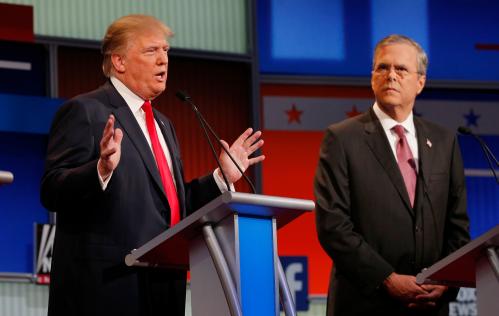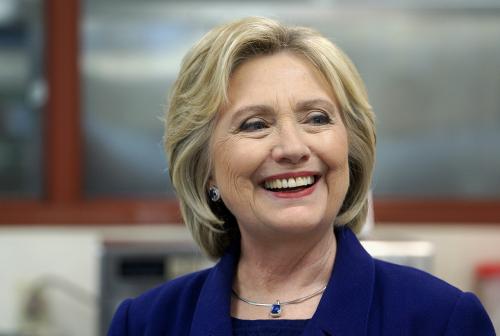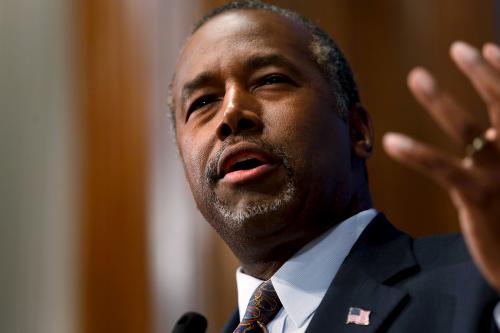As Campaign 2016 ramps up, there is plenty of advice for what presidential campaigns should be doing, and I will add to that pile. Every candidate should form a transition team as soon as possible.
This goes against conventional wisdom. Setting up a transition team, 16 months out from a presidential election and 18 months from Inauguration Day, is probably bad politics. Even as a presidential election draws near, discussion of the transition team is taboo for fear a candidate will appear overconfident and be accused of “measuring the drapes for the Oval Office.”
And yet, for a president—particularly a new one or even a president-elect—expectations are high and responsibilities are substantial. Policy issues arise from every corner of society and every country on Earth. Presidents are expected to articulate a policy vision to deal with all of them and satisfy a public that often makes unworkable or contradictory demands. While many of these issues will be addressed in the campaign, many will be ignored.
In the face of all of the expectations of and demands on presidents, they must also manage an administration—a government composed of millions of civilian and military employees. The president is also responsible for making political appointments—some 4,000(!!)—in order to staff and lead that administration. Policy demands are huge on presidents-elect, but staffing demands are just as burdensome.
No, it’s not time to pick a Cabinet—though the media loves asking such questions any chance they get. But a transition team is (and must be) much more than selecting Cabinet secretaries. Transition teams must work with their principals to compile lists of prospective candidates for jobs throughout an administration from the highest echelons down to seemingly anonymous, yet critically important, slots. These positions exist in almost every agency, bureau, division and office of the federal government. Appointees must be qualified and pass background checks, and considerations must be paid both to their loyalty to the presidential interests as well as to their ability to work with others around them.
Ask any former transition team member about the burdens of the job. They will tell you there is just too little time. There are too many positions to consider and fill. There are multiple types of background checks—criminal, financial, and additional clearances needed for national security and intelligence positions. The transition teams are understaffed and overworked. There are coordination challenges and communication issues between the team and the campaign, particularly in the afterglow of a successful run. And at the core of the mission is a nearly unfathomable task: selecting the staff for the leader of the free world.
Forget public backlash to the early formation of a transition team. Such a move would reflect the type of leadership expected from a president. The American public wants a leader who is thoughtful, ready to serve, and surrounded by a talented team of advisors.
The earlier a presidential candidate organizes a transition team, the more prepared that candidate will be to serve. It is not premature. It is not pretentious. Organizing a transition team early is responsible, sensible, and a sign of good leadership. Early transition teams would make for better policy, improved staff choices, and a smoother transition in January 2017. The American public, the media, and Congress are quick to criticize a president who makes poor personnel choices—selecting people who are mired in scandal, are ultimately unqualified, or both. Every president-elect and president wants to avoid those situations, and one smart way to reduce those risks is to organize a team that has the time and space to get the best job done.
There is an irony that some presidential candidates spend months upon months deliberating about and interviewing a campaign manager, but the task of staffing an entire executive branch gets squeezed into a narrow window of time. I would applaud the presidential candidate who announced a year out from the election that they have chosen a transition team. And when he or she is asked, “Why have you jumped the gun and organized this team so early?” The response should be “The real question is: Why hasn’t anyone else?”






Commentary
Every 2016 presidential candidate should already have a transition team
July 15, 2015